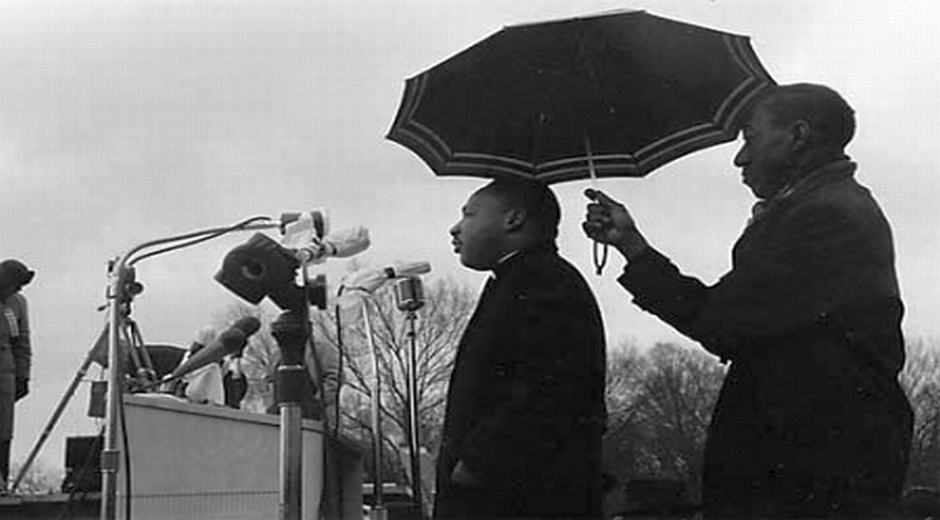
The Day I Met Martin Luther King

Thomas McAdam
iLocalNews Louisville is your best source of news and information about Derby City.
- Professional Journalist
During my college days, many of my friends became involved, to one degree or another, with the civil rights movement. Here in Louisville, I had grown to adulthood in segregated schools, went to segregated movies and libraries, and played in segregated parks. But a wave of change was spreading across the South.
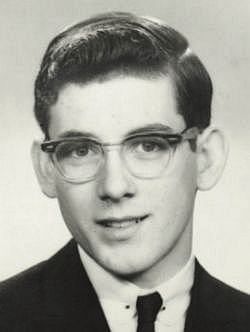
In 1963 I became involved with an organization called Allied Organization for Civil Rights in Kentucky; a group hoping to pressure the Kentucky legislature into passing a civil rights law to desegregate public accommodations. The group’s leaders included Georgia Davis Powers (later, Kentucky’s first Black female state senator), Fr. John Loftus (dean of Bellarmine College), and Frank Stanley, Jr., editor of The Defender, Louisville’s Negro (the word we used at the time) newspaper. I remember one of the leaders, Lukey Ward, bringing her little boy, Mike, to some of the meetings. Mike later became Louisville’s 3rd District U.S. congressman.
Kentucky’s General Assembly met for 90 days, every two years, back then. In 1964, the January through March session took up the highly contentious debate over civil rights. Our AOCR group organized a “March on Frankfort,” for March 15. We bussed in about 100,000 students, ministers, housewives, and factory workers; to march up Capitol Avenue to the legislature. The leaders of the march included Jackie Robinson, Ralph Abernathy, and a preacher from Georgia named Dr. Martin Luther King, Jr., who was starting to make a name for himself in the national press.
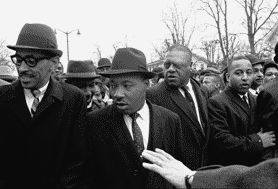
The March on Frankfort was a pretty good show. I got to shake Dr. King’s hand, and he gave a truncated version of his famous “I have a dream” speech to the crowd. We all sang, “We Shall Overcome,” and “The Battle Hymn of the Republic.” Up on the hill, however, the Kentucky legislature remained unconvinced.
In small groups, we infiltrated the Capitol building, and attempted to button-hole any politicians we might recognize. My state representative in the General Assembly was Jessie Oswald Johnson, a Republican from Valley Station. “Oz” and I were old friends: he was the assistant principal of my high school. At least twice a year, I would be sent to his office for a paddling (corporal punishment made me the man I am today). I credit him for slightly attenuating my life of crime.
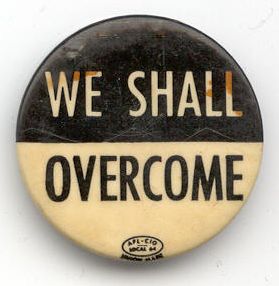
Oz agreed to speak with me out in the hall (my very first attempt at lobbying). He explained that the Republicans were solidly against the proposed public accommodations law, and that he felt he had to respect the view of his constituents. I suggested to him that it was ironic that the party of Kentucky’s own Abraham Lincoln, the party that freed the slaves, would not now want the descendants of those slaves to eat in the same restaurants with the rest of us. We argued back and forth for about half an hour, and he went back into the House chamber, saying he’s think some more about it.
A bunch of the marchers and organizers crowed the galleries above the House chambers, and watched the final debate and vote on the civil rights bill. It failed to pass. Oz Johnson voted in favor of the bill. Later that year, another politician named Johnson pushed the federal civil rights bill through congress; effectively mooting the need for state legislation. In the next year’s election, Oz Johnson was defeated by a Democrat.
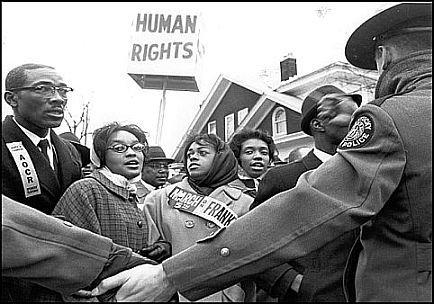
Several of us students in the gallery decided to stage a sit-in protest, and refuse to leave the Capitol building at the close of business. The AOCR leaders had some lawyers standing by with bail money, in anticipation of the massive arrests to come. We hung “Freedom or Death” signs around our necks and dug in for a long siege. The police never came.
The House leadership outsmarted us. They sent word that we were welcome to stay in the gallery as long as we wanted, so long as we didn’t damage any of the furniture. The Kentucky legislature adjourned, sine die. The lights were turned down, and we sat in the balcony, staring down to the dark and empty legislative chamber below.
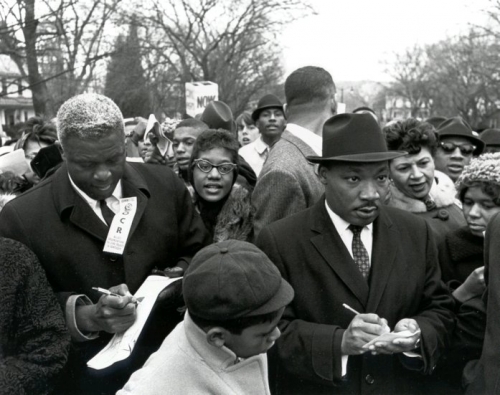
Then, Frank Stanley, Jr., came up with an idea: we’d stage a hunger strike. I hadn’t signed on for this sort of thing, but I thought, “What the hell—if Gandhi could do it, why can’t I?” I slipped out to a payphone to call my folks and tell them I wouldn’t be home for dinner. I began to regret not finishing my breakfast.
By the second day of the hunger strike, the national press had arrived, and the papers were full of the story. The legislators had all gone home, but “these brave students” were “putting their lives on the line for freedom.” Film at eleven. I’m not sure how brave we were (I certainly wasn’t), but going a couple of days without food (there was a soft drink machine in the basement) could hardly push a healthy young adult to the edge of extinction. Finally, Mr. Stanley arranged for a teenaged girl to “swoon” in front of the television cameras, and, with a flourish of oratory, called an end to the hunger strike, as the ambulance crew ceremoniously removed the poor girl from the building. As an adult, he just couldn’t stand by and allow “these brave students” to perish; even in the name of freedom and justice. Much of politics is theater.
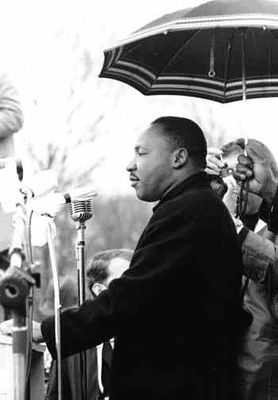
What really brought this whole thing home to me was a photograph snapped of me by a photographer from United Press International. I was asleep in a gallery seat, in my Bellarmine College blazer, with my “Freedom or Death” sign around my neck. The next day, the photo was on the front page of The Louisville Times, top right, above the fold.
The Louisville Times was the afternoon edition of The Courier-Journal, and was delivered to homes in Louisville in time for reading at the dinner table. But an earlier edition of the Times, known as the Red Flash, came out around noon, each weekday. At the time, my father worked in the Internal Revenue office in Louisville’s federal courthouse building, across the street from the Courier-Journal building. A fellow IRS agent, returning from lunch, picked up a copy on his way back to the office and plopped in down on my father’s desk.
“Look what that n*gg*r-loving boy of yours is up to now,” he sneered at my father. My father, every bit of 5-foot 6-inches, glanced at the front page of the Red Flash, stood up, and punched his colleague in the nose. After other IRS agents broke up the fight (my Dad was in the Golden Gloves as a kid, so I don’t imagine it was much of a contest), the pugilists were sent to the Director’s office, where they were made to apologize and admonished that this sort of behavior could not be tolerated in a U.S. government office. They shook hands, and the matter was forgotten.
But I never forgot. I was never so proud of my Dad. And, I think Dr. King would have been proud of him too.
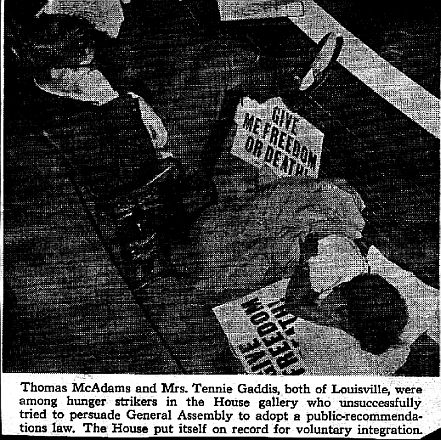
Photo by UPI, from The Louisville Times